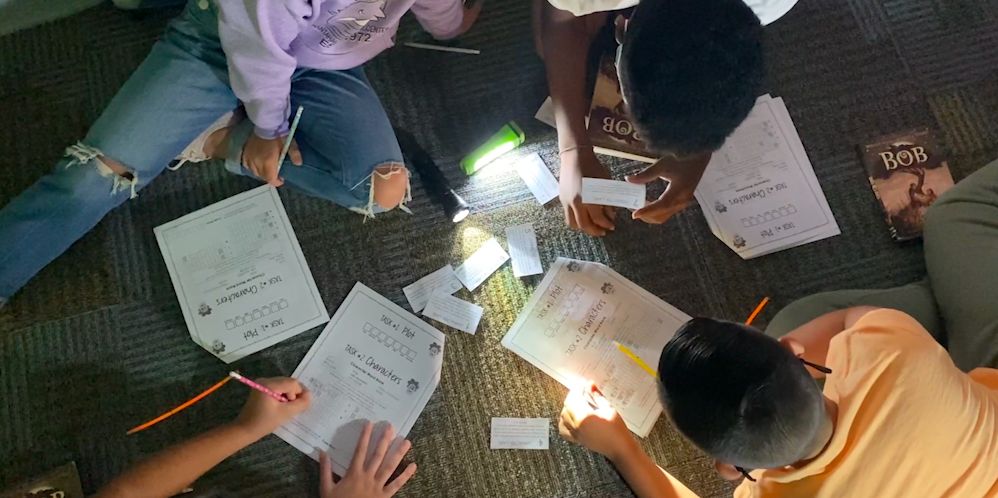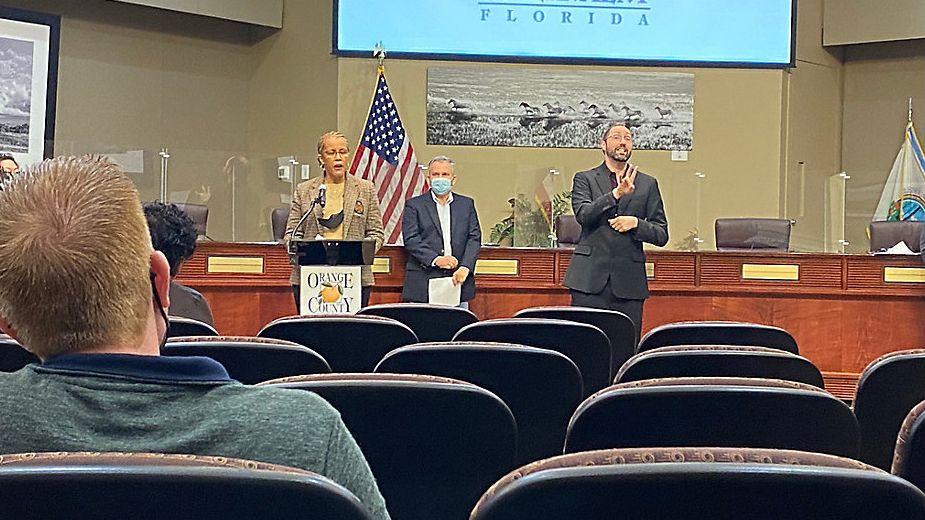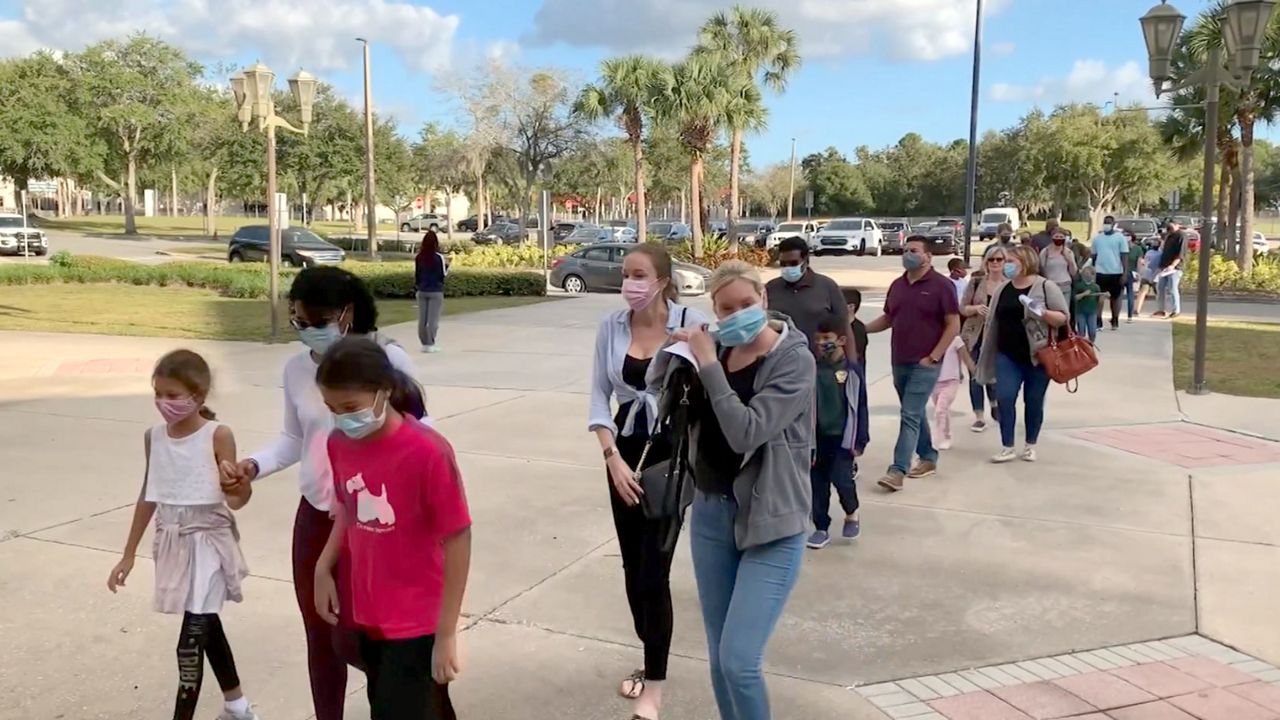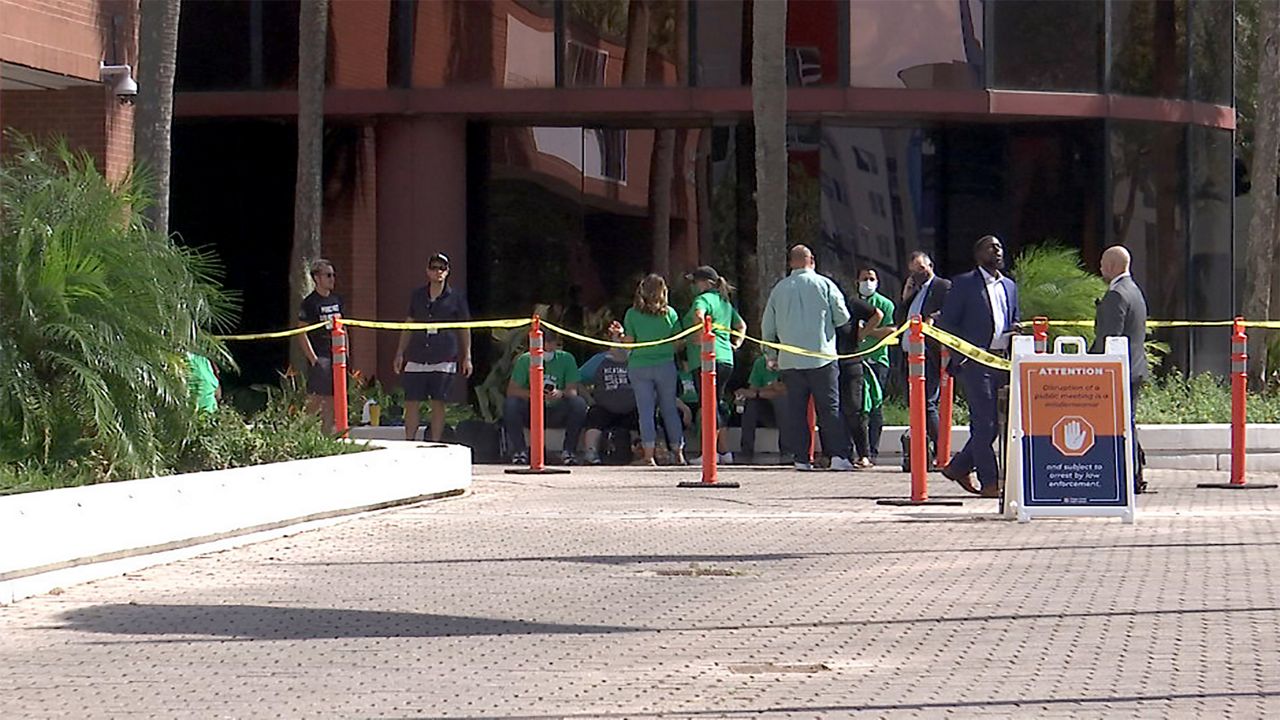ORANGE COUNTY, Fla. — Some Central Florida parents are anxious about their children having to go back to brick and mortar campuses in January.
What You Need To Know
- Some parents worry that the Florida DOE might require all students to return to the classroom in January
- The Department of Education said a decision would likely be reached in mid-November
- Expert says if schools were at 100%, it would be very difficult to maintain social distancing
That’s if the state decides not to extend the waivers for hybrid learning models.
“I couldn’t imagine that they would be this happy with virtual school,” said Orange County parent Linda Mirelman.
She says her first grade daughter is thriving doing Orange County Public Schools LaunchEd@home, the hybrid option that lets students at home get taught by a teacher in a classroom.
“It’s been better than I could’ve expected, all thanks to our teacher who is amazing,” Mirelman said.
Not only is her daughter doing well, but she has peace of mind knowing that her family is at a much lower risk of being exposed to COVID-19.
But the waivers that allow OCPS and other districts to do the hybrid model expires at the end of 2020.
And if the state doesn’t extend it, all students will be required to go back to brick and mortar schools.
“It seems like a recipe for disaster," Mirelman said. "I don’t know why we would put the kids back at 100%."
Mirelman and her family know how deadly this virus can be — it took her father-in-law earlier this year.
And they don’t want to put any other grandparents at risk.
“The anxiety of are we possibly exposed and are we gonna pass this on to a loved one is always there, and it would be increased if we were in school full time,” Mirelman said.
Children’s lung specialist Dr. Akinyemi Ajayi agrees.
“Well I think that would be a really terrible idea,” Ajayi said.
Even with thousands of OCPS students returning for the second nine weeks of school, only about 42% of the total student population is back on campus.
Ajayi said a big reason we haven’t seen super spreader events in schools here is because that reduced capacity makes social distancing easier.
“If every kid in school goes back to class, we’re not going to be able to maintain social distancing,” Ajayi said.
We reached out to the Florida Department of Education about extending the waivers.
They told us in a statement they are currently gathering data from every school district in Florida, in order to make a decision by mid-November.
Mirelman just hopes they recognize how life-saving the hybrid education model has been.
“We’re hearing from a lot of experts that this is not over, we need to stay the course,” Mirelman said.
Mirelman says if the state doesn’t extend the waivers they’ll likely put their kids in Florida virtual school.
In their statement the state said they would have options for medically vulnerable students and staff, but that, “a distance education is still nowhere near the quality of an in-person education for most students.”









